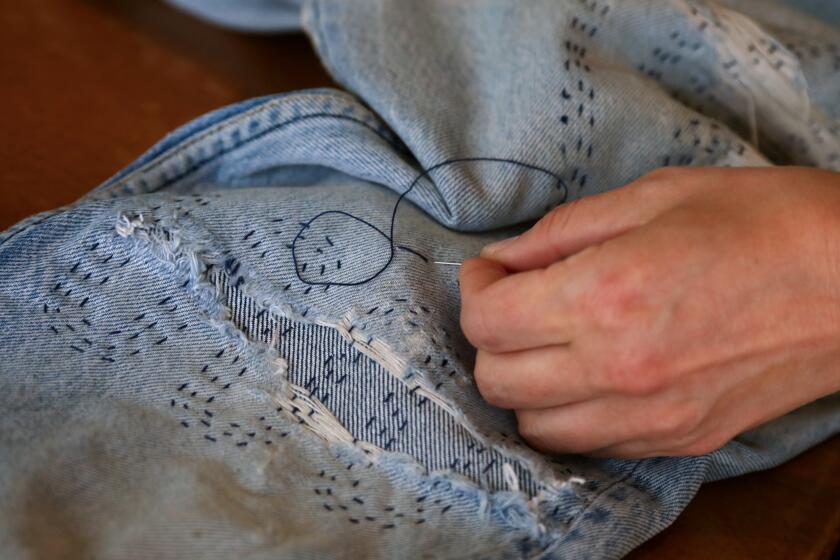Gifford’s Clothing Label Under Fire Again
Sweatshops in Central America produce garments for TV personality Kathie Lee Gifford’s clothing label, a labor rights group charged Tuesday, eliciting a swift offer from Gifford’s representatives to help put a halt to the alleged abuses.
The National Labor Committee said two workers were fired this month and a union organizer received death threats after questioning working conditions in the Caribbean Apparel factory in the American Park free-trade zone in Santa Ana, El Salvador.
The workers said at a news conference in New York that women in the factory were subjected to pregnancy tests and worked 12- to 15-hour days at 60 cents an hour in poorly ventilated buildings surrounded by barbed wire and armed guards.
“Kathie Lee Gifford is a celebrity, a very influential and powerful person,” said NLC Executive Director Charles Kernaghan, who has spearheaded a campaign against sweatshops and who revealed the link between the TV personality’s label and other sweatshops in 1996.
“If she would stand up to defend the rights of these women, to demand that their rights be respected, she would have enormous impact,” Kernaghan said of Gifford, co-host of “Regis and Kathie Lee” with Regis Philbin.
At the same news conference, a representative of Kellwood, the apparel company whose contractors make clothing for the Kathie Lee Gifford label, made a surprise appearance to state its case.
“We want to sit down with you and address these charges, which are very serious,” Robert Adler, chairman of the Kellwood division that holds the master license for the label, told Kernaghan.
“We have dispatched investigators in El Salvador, and they are addressing these allegations,” Adler said.
Gifford signed an agreement three years ago to open for inspection factories where garments for her label were made.
Adler and Kernaghan said they would meet to try to reach agreement on who should monitor factories run by contractors to make sure they adhere to codes of conduct drawn up by U.S. companies to halt the exploitation of workers.
More to Read
Start your day right
Sign up for Essential California for news, features and recommendations from the L.A. Times and beyond in your inbox six days a week.
You may occasionally receive promotional content from the Los Angeles Times.






